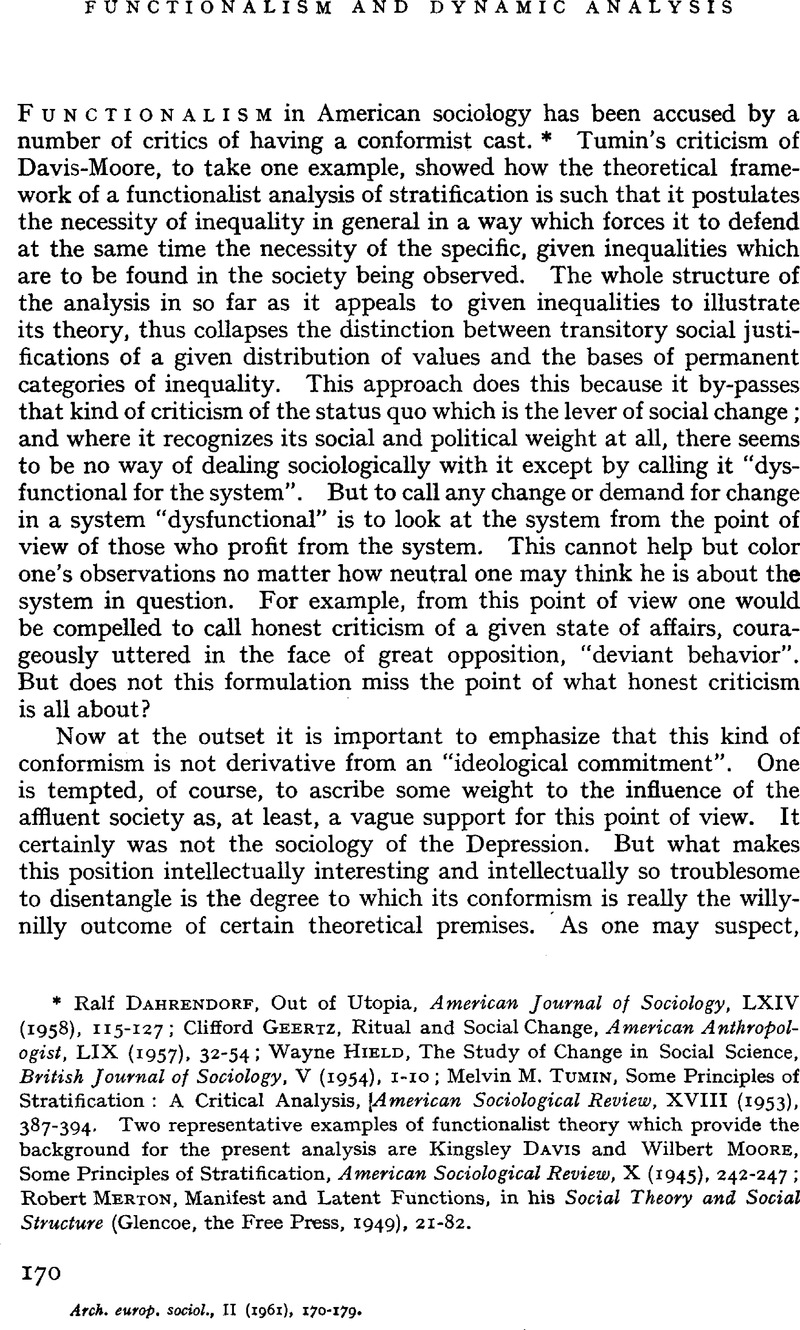No CrossRef data available.
Published online by Cambridge University Press: 28 July 2009

* Dahrendorf, Ralf, Out of Utopia, American Journal of Sociology, LXIV (1958), 115–127CrossRefGoogle Scholar; Geertz, Clifford, Ritual and Social Change, American Anthropologist, LIX (1957), 32–54CrossRefGoogle Scholar; Hield, Wayne, The Study of Change in Social Science, British Journal of Sociology, V (1954), 1–10CrossRefGoogle Scholar; Tumin, Melvin M., Some Principles of Stratification: A Critical Analysis, [American Sociological Review, XVIII (1953), 387–394CrossRefGoogle Scholar. Two representative examples of functionalist theory which provide the background for the present analysis are Davis, Kingsley and Moore, Wilbert, Some Principles of Stratification, American Sociological Review, X (1945), 242–247CrossRefGoogle Scholar; Merton, Robert, Manifest and Latent Functions, in his Social Theory and Social Structure (Glencoe, the Free Press, 1949), 21–82.Google Scholar
(1) For a fuller discussion of this than I give here, see my paper, Social Stratification and the Political Order, American Journal of Sociology, LXIV (1959), 571–578.Google Scholar
(2) “Some were for accepting the proposals, as offering the only chance of preservation. But the priests took a different view of the matter. They knew that the ruin of their own order must follow the triumph of Christianity […] The eloquence of the priests, artfully touching the various wrongs of his people, roused the hot blood of Guatemozin […] ‘Let no man, henceforth, who values his life, talk of surrender. We can at least die like warriors’.” Prescott, William H., History of the Conquest of Mexico (New York, the Modern Library), p. 589Google Scholar. See also the dialogue at Melos in Thucydides' History of the Peloponnesian War.
(3) The only respect in which it makes sense to speak of government in the abstract, as a politically meaningful entity, is noticeable in such expressions as “any government would be better than none”. As a meaningful political opinion, however, this can only be the demand of people in a state of complete lawlessness and disorder. But the only kind of government which can arise under these circumstances is some form of dictatorship, be it the more benign form of Wyatt Earp or the more permanent dictatorships of all times. Mere government, in the apparently abstract, not only is the product of an extreme situation but necessarily takes shape in a specific political order.
(4) The implication of this is that most political controversies are not about values but facts.
(5) An attack upon interest qua interest, in other words, is the political equivalent of the genetic fallacy.